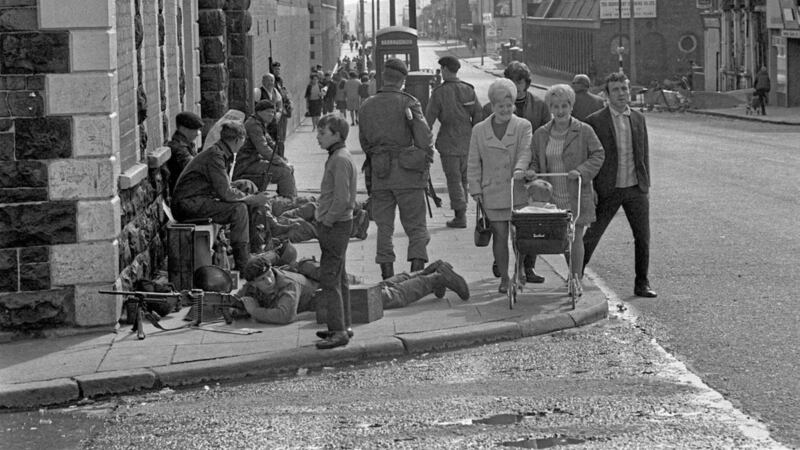BRITISH government plans to end all Troubles-related prosecutions are broader than an amnesty introduced in Chile by the country's former dictator General Augusto Pinochet, a new report has found.
The report by academics at Queen’s University Belfast and the Committee on the Administration of Justice (CAJ), found that the government's plans were a "betrayal of repeated promises" to victims, "politically unworkable", and a breach of the Good Friday Agreement.
The government's proposals, which are opposed by all Northern Ireland's main parties, would give an amnesty to former members of the security forces and former paramilitaries.
They would also see an end to future inquests and civil actions.
The report looked at the proposals in terms of international and domestic human rights law, the Good Friday Agreement, and other international experiences of amnesties.
Professor Louise Mallinder, from the School of Law at Queen’s University, said the proposed amnesty is broader than one introduced in Chile by former dictator General Augusto Pinochet.
She said unlike the British government's proposals, Pinochet’s amnesty excluded certain crimes such as sexual violence; applied only to the first five most violent years of the 17-year dictatorship; excluded criminal cases already before the courts, and applied only to criminal prosecutions.
"In other words, the proposed UK amnesty is Pinochet plus," she said.
Under the proposals, families in the north can attempt to seek the truth through a new information recovery body (IRB).
However, Daniel Holder, CAJ Deputy Director, said the IRB will have much more limited powers "essentially limiting it to a desktop review of papers and taking voluntary statements".
"Such powers fall significantly short compared to those already available to the PSNI, the Police Ombudsman or judicial powers of discovery in a prosecution, inquest or civil action," he said.
Professor Kieran McEvoy, Professor of Law at Queen’s University, said the plans "represent a unilateral abandonment of the Stormont House Agreement, a breach of the Good Friday Agreement and a betrayal of repeated promises made to victims".
"This government’s policy on legacy in Northern Ireland is seemingly driven primarily by concerns in Westminster for the fate of a small number of British army veterans being prosecuted for conflict related offences," he said.







